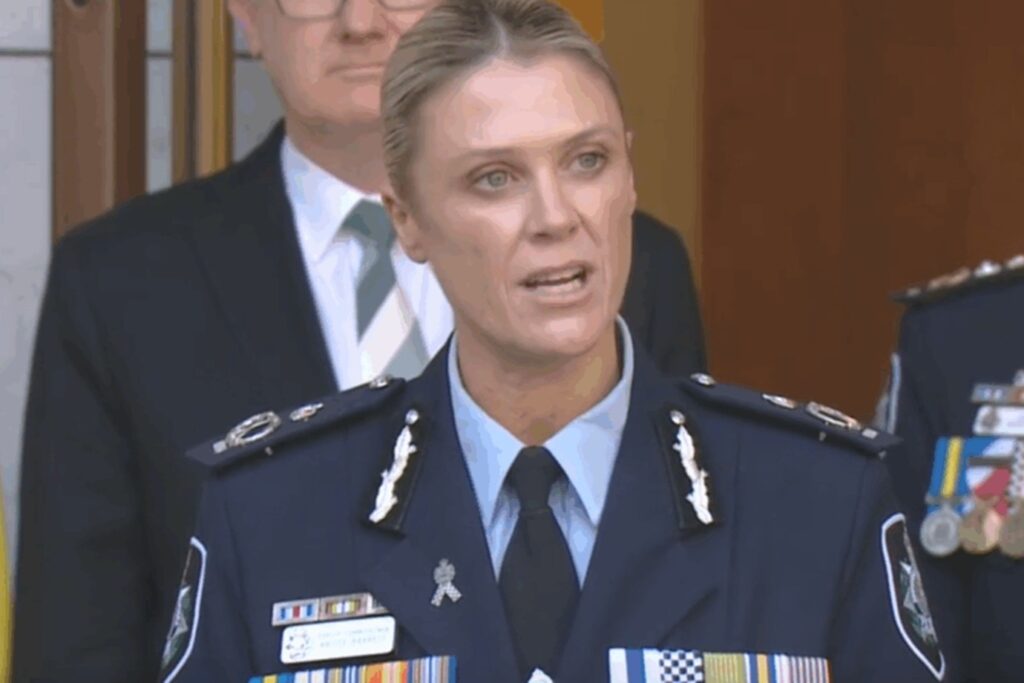Australia’s new Federal Police Commissioner Krissy Barrett says officers are set to crack down on men using online networks to exploit and radicalise vulnerable children, particularly young girls.
In her first speech at the National Press Club on Wednesday, Barrett will announce the creation of Taskforce Pompilid to combat the network’s crimes, which have “real world consequences”.
She warns that victims are being groomed online and then forced to perform serious acts of violence on themselves, siblings or pets.
“While these networks do not have a centralised hierarchy or a single ideology, they are prolific and are attracted to violent extremism, nihilism, sadism, Nazism and satanism,” Barret will say, according to reported excerpts from her speech.
“They are crimefluencers, and are motivated by anarchy and hurting others, with most of their victims pre-teen or teenage girls.”
Barret will say these crimes represent a “new and disturbing front in traditional gender-based violence”, with most networks run by young boys and men from Western, English-speaking backgrounds.
“As a priority under my Commissionership, the AFP will set up Taskforce Pompilid to use the full powers of the AFP to target these offenders… we will protect victims, arrest offenders, expose facilitators and remove anonymity that shields offenders from law enforcement,” Barrett says.
The AFP will work with Microsoft to interpret Gen Z and Alpha emojis and slang in encrypted group chats, in an effort to dismantle communications to children at risk of harm.
Barrett will also move to reassure parents that the AFP is dedicated to providing “relevant, timely and truthful information about what is happening in the world and how to best mitigate these criminal threats”.
“I want Australians to know, we will be with you- you are not alone,” Barrett will say.
Taskforce Pompilid is part of the AFP’s broader push to stop online harm creating real world consequences, with Barrett also focused on the way social media and online platforms are reshaping counterterrorism and pulling young Australians into extremist movements.
In addition, Barrett’s speech will highlight a nationwide focus on increasing co-operation with a Five Eyes Law Enforcement Group to combat offences that include murder, inciting suicide and harm online, violent sexual offences, possession of child abuse material and cybercrimes.
“In Australia, 59 alleged offenders have been identified as being members of some of these prolific decentralised online crime networks,” she will say, highlighting a series of successful arrests.
“The AFP, working with law enforcement partners in Australia and overseas, has moved quickly against offenders, resulting in nine international and three domestic arrests. In Australia, those arrested were aged between 17 and 20 years old.”
Three weeks ago, when Barrett was officially appointed the first woman to lead the AFP, she laid out her five-year term strategies, declaring her leadership would focus on supporting social cohesion in Australia.
“Under my leadership, the AFP will have a laser focus on disrupting crimes that impact our sovereignty, our democracy, our social cohesion, our financial systems, our future prosperity.”


